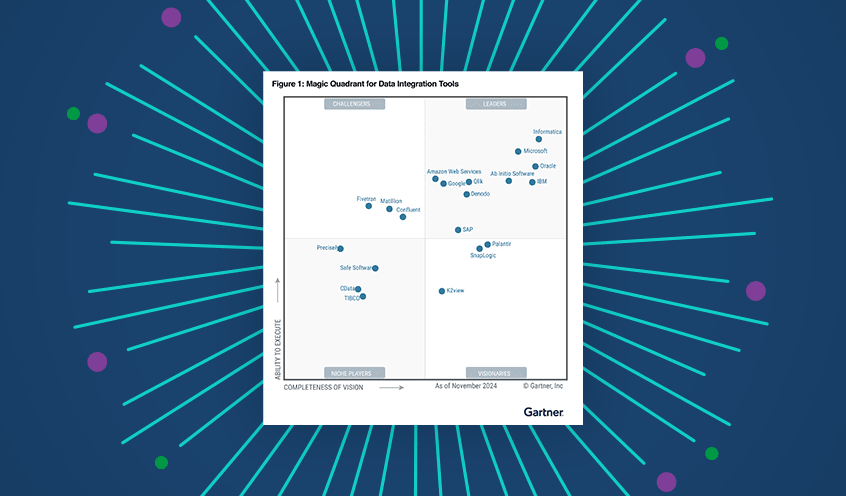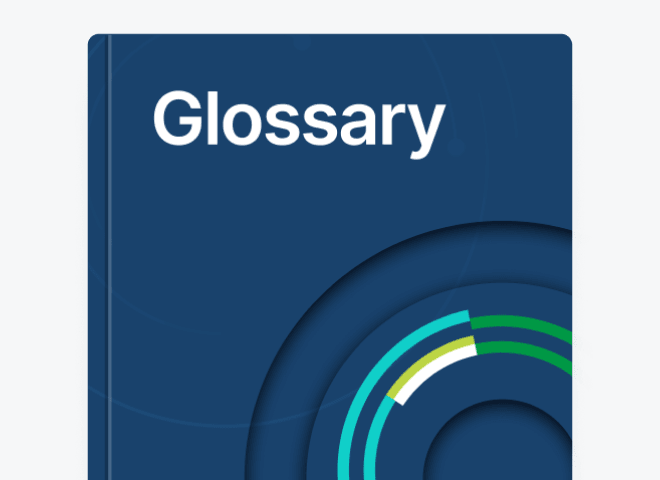Like many academic institutions, Loyola Marymount University (LMU) now requires proof of COVID-19 vaccination and boosters for students, faculty, and staff who are returning to campus. What’s unique about LMU is the creative way the university is using data to control safe access to academic facilities.
Anyone who wishes to enter a building on LMU’s two West LA campuses simply taps their authorization card on a scanner at the door. LMU’s Lion Health Check system determines whether the individual has supplied all required information, including a certificate of vaccination as mandated by the local Department of Public Safety (DPS). All of the data needed to grant access is now being orchestrated in Talend. And that’s something new and exciting for LMU.
From consuming data to producing information
“This is a whole new chapter for us,” said Jean-Paul Andrieu, Director of Systems Analysis and Process Architecture at LMU. “We went with Talend many years ago as an ETL solution. But these past two years have really challenged us to be more creative about how we use our data and our technology.”
It’s not just about connecting systems and consuming data and technologies from other vendors anymore. “Now we’re using Talend to actually produce information other vendors can use,” said Jean-Paul. “And that has helped us become incredibly agile—not only in responding to COVID, but also in many of our core processes.”
In addition to the access control example, Jean-Paul pointed to several other use cases:
Measuring COVID activity on campus. With Talend, LMU is able to monitor not only vaccination status among students, faculty and staff, but also the overall health of the university from a COVID-19 perspective.
“We use HIPAA-compliant surveys, and with Talend we can track how many have been tested, how many cases are active, what percentage have been vaccinated, and more,” said Jean-Paul.
“We implemented this new system in less than three months, and with Talend orchestrating the survey data we collect, we can notify supervisors and the DPS if people are on campus who have not complied with COVID policies. It enables us to keep everyone on campus a little bit safer.”
Tracking changes to academic registrations. Students are known to change their minds about everything from the courses they’re taking this semester to their majors and minors. Before COVID-19, keeping track of the changes was largely a manual task handled at the registrar’s office. During the pandemic, however, these paperwork-intensive processes had to change.
“Nobody was on campus. There was no one in the office to send the forms to,” said Jean-Paul. “We tried doing it over email, but lots of things went wrong. So, we created an automated workflow process whose integrations with real-time data were orchestrated by Talend.”
The workflow integrated all of the information about the curriculum, the students, the school or college, the faculty involved in the request—everything, according to Jean-Paul. With Talend it was easy to bring new data elements into the workflow, right up to the moment the request was approved or denied.
“We saved money because paper was no longer involved. We saved time because students no longer had to appear multiple times at multiple buildings as part of this manual process. And decisions can now be made in a fast, systematic way,” said Jean-Paul. “It used to take students about two weeks to complete a change of an academic program, and now it takes about a day.”
The benefits were soon extended to other processes. “The automated workflow was so wonderful that the registrar said ‘let’s move every single one of our processes to this type of automated format’,” said Jean-Paul. “And so we’ve started doing that. Now we have 50 or 60 processes moving to that model, including the vaccine registration and confirmation process.”
Automating survey management. One of the biggest benefits of using Talend, according to Jean-Paul, is the agility delivered by the reusability of Talend components. One example: the ability to automate the management of Qualtrics survey data.
Qualtrics is an experience management company that uses surveys to guide and inform decisions about improving the quality of experience (QoE). Recently Jean-Paul’s team worked with the School of Education at LMU to make it easier to automate the processing of Qualtrics survey data using an engine in Talend. With Talend, the data could be used and re-used in a flexible way.
“They were pleased with the result, and later Student Affairs asked us if we could do a similar thing for them,” said Jean-Paul. “We said we could do it in about a week, and they just said, ‘Wow!’”
Center of all data services
Thanks to the success of these and other use cases, Talend has become the center of LMU’s data services, according to Jean-Paul. The university now runs more than 800 Talend jobs to orchestrate, consolidate, and build more than 40 data marts in its data warehouse, which feeds LMU’s Tableau BI (business intelligence) solution.
“We measure success with Talend by intangible factors such as the quality of the data, the scalability, and the efficiency gains we’ve seen,” he said. “We also have seen tangible advantages, such as cost and time savings, though we have yet to put those into specific KPIs or ROI numbers."
What’s next for Talend at LMU? “Our roadmap includes using Talend as a key part of our Digital Transformation strategy,” said Jean-Paul. “That requires a platform that allows us to integrate and consume qualitative data really, really well, and allows us to be efficient with all aspects of process automation—bringing intelligence to those processes, such as machine learning and artificial intelligence.
“Ultimately, we want to help people make decisions on the fly, and Talend will be an integral part of that capability over the next five years.”
About Loyola Marymount University: Founded in 1911, LMU is a top-ranked university rooted in the Jesuit and Marymount traditions. The university is committed to fostering a diverse academic community rich in opportunity for intellectual engagement and real-world experience. LMU recruits, retains, and supports a diverse faculty committed to excellence in teaching, research, scholarship, and creativity.
In this article:
Data Integration













































